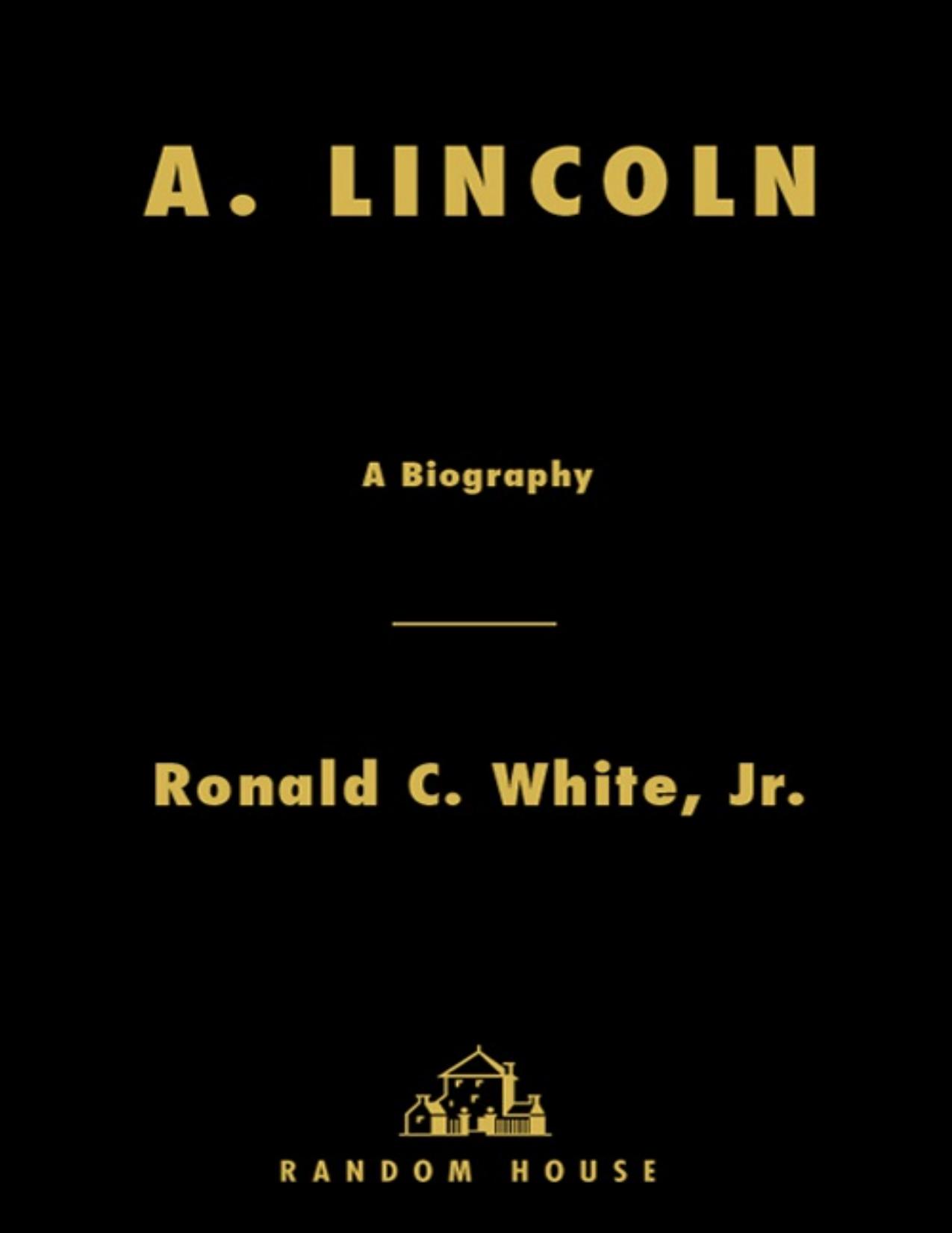A. Lincoln by Ronald C. White Jr

Author:Ronald C. White, Jr. [White, Ronald C.]
Language: eng
Format: epub, azw3, mobi, pdf
ISBN: 978-1-58836-775-4
Publisher: Random House Publishing Group
Published: 2009-03-25T16:00:00+00:00
A People’s Contest / 419
Elmer Ellsworth, almost like a son to Abraham Lincoln, was the first Union officer to die
in the Civil War. This illustration depicts the deed of the first hero killed in battle.
4 2 0 / A. Lincoln
reporter entered the library. Lincoln, stunned and heartbroken, turned
to the visitors, extended his hand, and said simply, “Excuse me, but I
cannot talk.”
Abraham and Mary went down to the Washington Navy Yard to
view Ellsworth’s body. The president ordered it to lie in state in the East
Room. A funeral service took place in the White House on May 26,
1861. Throughout the North, Ellsworth became a symbol of courageous
young men willing to give their lives for the Union. His death also
helped shake off any remaining complacency in the Northern public.
Overcome with grief, Lincoln wrote a letter to Ellsworth’s parents
on the day before the funeral. “In the untimely loss of your noble son,
our affliction here, is scarcely less than your own.” He described
Ellsworth’s sterling qualities, “a fine intellect, an indomitable energy,
and a taste altogether military, constituted in him, as seemed to me, the
best natural talent, in that department, I ever knew.” Lincoln then
turned to his own relationship with the young man—“as intimate as the
disparity of our ages, and my engrossing engagements, would permit.”
He added, “What was conclusive of his good heart, he never forgot his
parents. . . . In the hope that it may be no intrusion upon the sacredness
of your sorrow, I have ventured to address this tribute to your brave and
early fallen child. May God give you that consolation which is beyond
all earthly power.” Lincoln’s letter, the first of hundreds he would write
to the parents or spouses of fallen soldiers, is remarkable in both its
affection and eloquence—written by a man consumed in grief.
t h e m o s t p u b l i c m a n in America lived in a White House that served
as both home and office. The West Wing, which houses the current
White House offices, would not be added until 1902 by President Theo -
dore Roosevelt. This arrangement became the setting of an odd mixture
of politics and pomp.
William Howard Russell, correspondent of the Times of London,
described the White House as “the moderate mansion.” He and other
visitors from abroad compared it unfavorably to London’s Buckingham
Palace or Paris’s Tuileries. Abraham and Mary Lincoln, on the contrary,
were impressed with a home that had thirty-
one rooms set amid
twenty- two acres of woodlands. To try to add to the dignity of the res-
idence, President James K. Polk had placed a bronze statue of Thomas
Jefferson on the North Lawn in 1848. President Buchanan had built a
conservatory to replace a greenhouse, but admittedly much of the sur-
Download
A. Lincoln by Ronald C. White Jr.azw3
A. Lincoln by Ronald C. White Jr.mobi
A. Lincoln by Ronald C. White Jr.pdf
This site does not store any files on its server. We only index and link to content provided by other sites. Please contact the content providers to delete copyright contents if any and email us, we'll remove relevant links or contents immediately.
| U.K. Prime Ministers | U.S. Presidents |
Waking Up in Heaven: A True Story of Brokenness, Heaven, and Life Again by McVea Crystal & Tresniowski Alex(37812)
Empire of the Sikhs by Patwant Singh(23086)
We're Going to Need More Wine by Gabrielle Union(19046)
Hans Sturm: A Soldier's Odyssey on the Eastern Front by Gordon Williamson(18592)
Leonardo da Vinci by Walter Isaacson(13336)
The Radium Girls by Kate Moore(12028)
Tools of Titans by Timothy Ferriss(8396)
Educated by Tara Westover(8054)
How to Be a Bawse: A Guide to Conquering Life by Lilly Singh(7486)
Permanent Record by Edward Snowden(5847)
The Last Black Unicorn by Tiffany Haddish(5636)
The Rise and Fall of Senator Joe McCarthy by James Cross Giblin(5280)
Promise Me, Dad by Joe Biden(5154)
The Wind in My Hair by Masih Alinejad(5095)
A Higher Loyalty: Truth, Lies, and Leadership by James Comey(4964)
The Crown by Robert Lacey(4817)
The Iron Duke by The Iron Duke(4356)
Joan of Arc by Mary Gordon(4112)
Stalin by Stephen Kotkin(3968)
